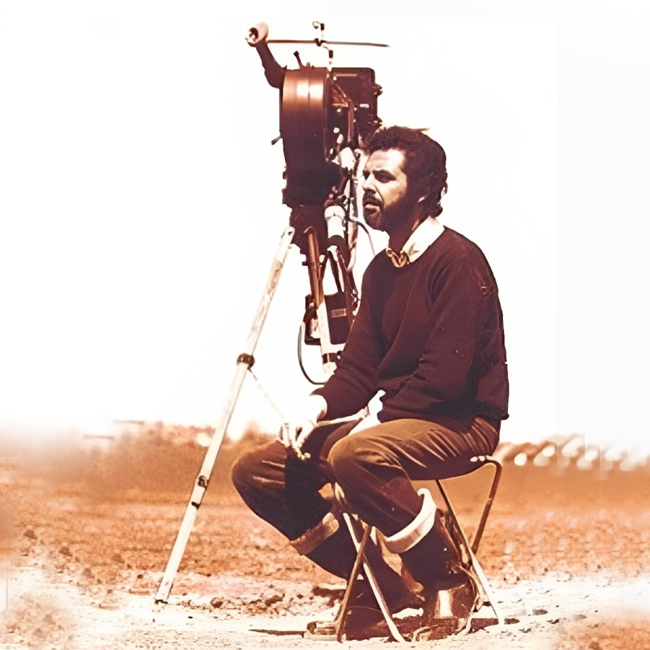

Sohrab Shahid-Saless (June 28, 1944–July 1, 1998) was a film director and screenwriter. He was diagnosed with tuberculosis while studying film at the Vienna Film Academy. Then, he went to France to receive medical treatment, where he met many of the French New Wave’s filmmakers, including Jean-Luc Godard and François Truffaut, who had an impact on his career. In 1968, Shahid-Saless returned to Iran and began making his short films and documentaries. His first feature films, Yak ittifāq-i sādah (A simple event, 1973) and Ṭabiʿat-i bī’jān (Still Life,1974), were critical and commercial successes, paving the path for his upcoming film career both in Iran and Germany. Shahid-Saless is known for his poetic realism, focus on the human condition and social commentary. He often explored themes of alienation, poverty, and the search for meaning in a rapidly changing world. His career was cut short with his death in Chicago at the age of 54.
Shahid-Saless’ career comprises two distinct phases: the first marked by his works in Iran, followed by a significant shift upon his emigration to Germany in 1976. In Germany, Shahid-Saless went on to produce films like Reifezeit (Coming of Age; 1976), Tagebuch eines Liebenden (The Diary of a Lover; 1977), Grabbes Letzter Sommer (The Last Summer of Grabbe; 1980), Ordnung (Order; 1980), Anton P. Chekhov: A Life (1981), and Utopia (1983).
Due to his cinematic innovative vision and style, Shahid-Saless won twelve professional film awards including the Silver Bear at the Berlinale and the FIPRESCI Prize for Ṭabīʿat-i bījān (1974), the OCIC Award, the FIPRESCI Prize, and the Inter film Award for Dar ghurbat (In exile, 1975), the Golden Bear at the 1983 Berlin International Film Festival for Utopia (1983), and the Teleplay Award for Hans-Ein Junge in Deutschland at the 1985 Baden-Baden TV Film Festival—thereby establishing his place as a celebrated figure in twentieth-century Iranian cinema.
